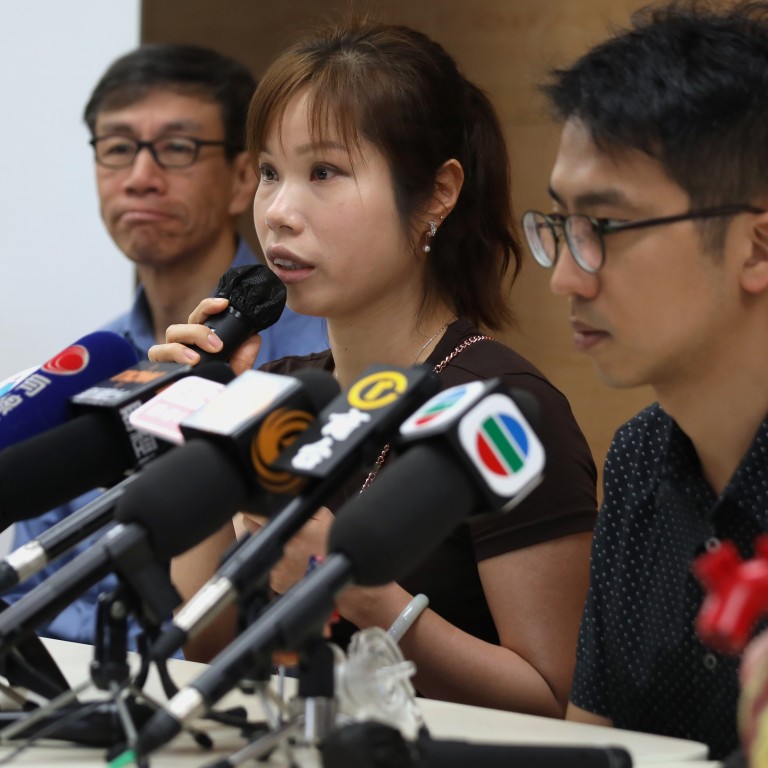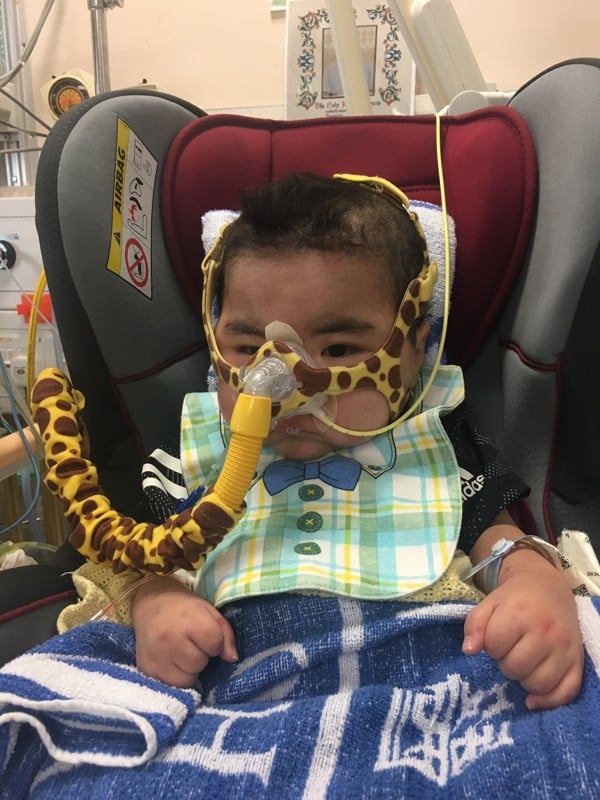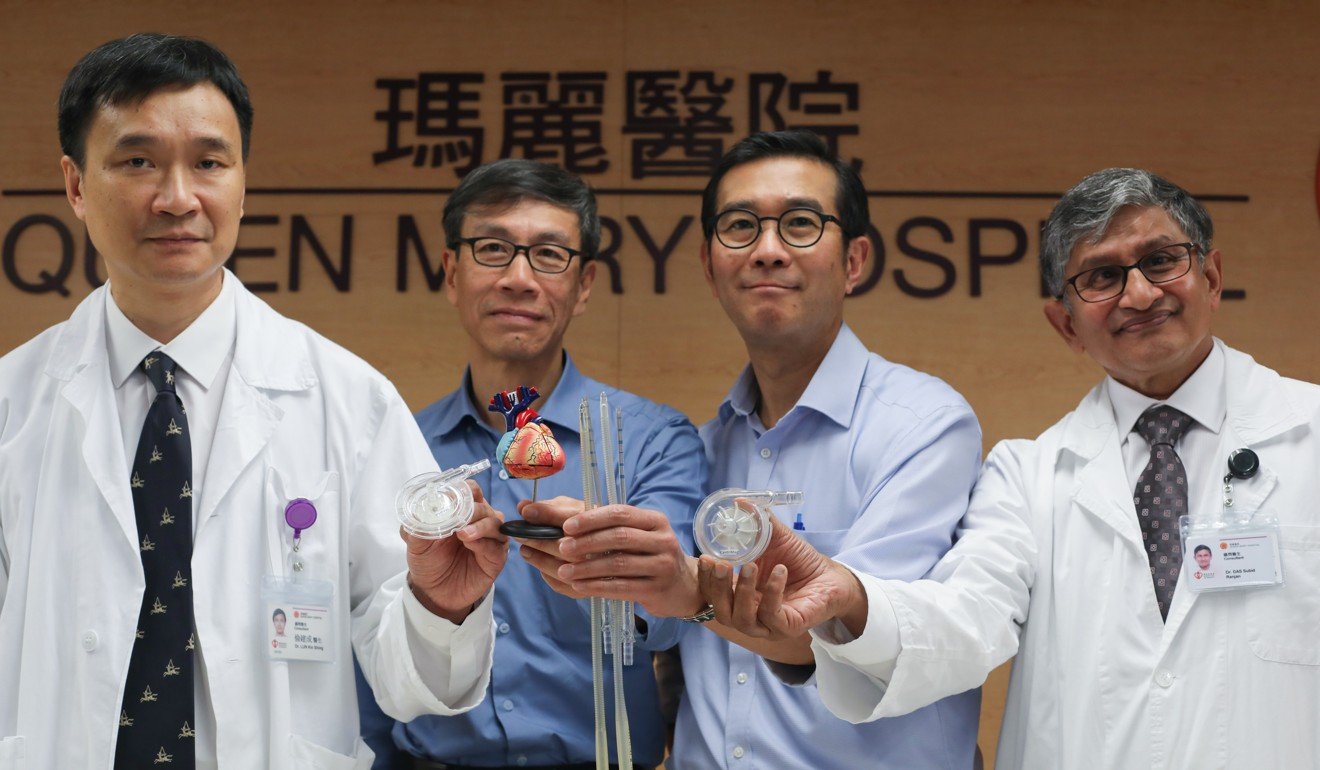
Toddler suffering from rare genetic disease undergoes successful heart transplant, making him the youngest ever such patient in Hong Kong
- Hui Chi-hoi, who is 20 months old, has restrictive cardiomyopathy, which leads to multiple organ failure and also claimed the life of his elder brother
- Surgery lasted 10 hours and was greatly complicated by the child’s young age and size, as he weighed only 9.5 kilograms
A 20-month-old toddler suffering from a rare genetic disease that claimed the life of his elder brother, has successfully undergone a “miracle” heart transplant, making him the youngest patient ever to receive such an operation in Hong Kong.
The 10-hour surgery which Hui Chi-hoi underwent last month at Queen Mary Hospital in Pok Fu Lam, was considered the most challenging of its kind because of the patient’s young age. The boy weighed only 9.5 kilograms and had a heart smaller than an adult’s fist.
“It was the most complicated heart transplant procedure ever completed in the medical history of Hong Kong. There was a 30 to 40 per cent chance of failure, which could have resulted in Chi-hoi dying on the operating table,” said Dr Timmy Au Wing-kuk, the department of cardiothoracic surgery’s chief of service at the hospital, in a press conference on Friday.

Chi-hoi has restrictive cardiomyopathy, a rare genetic defect, which has led to multiple organ failure, including his heart, kidney, liver and lungs, as well as ischemic cerebral attacks, a condition where an artery in the brain is blocked. His brother, who also had the defect, died at the age of seven months in 2016.
Chinese toddler has surgery to remove 21 magnetic beads from his stomach
These medical conditions made the transplant and anaesthesia procedures more difficult as there was a lot of scar tissue surrounding Chi-hoi’s heart and major organs, while 70 per cent of the surface of his heart was covered or obstructed by four large cannulae, tubes from a heart pump used to maintain Chi-hoi’s heart functions.

“It took me an hour and a half to locate all the blood vessels and veins because of these complications, before I could perform the surgery and replace the heart. I would say it is the most difficult heart transplant I’ve ever done in my more than 25 years of service,” said Au.
Patient forced to undergo open heart surgery after broken wire left in artery following insertion of stent
The medical team also broke another record, achieving the longest duration for PediMag BiVAD support in the Asia-Pacific region, as the patient had been sustained by the heart pump device for 58 days before the transplant.
Chi-hoi had waited seven months before receiving a heart donation from a seven-year-old boy who died from chronic debilitating diseases. Medical professionals had said there was a very slim chance of there being a sufficiently small heart suitable for the baby.

The boy’s mother said she could not believe her luck when she got the call telling her of an available heart from the hospital, and wanted to thank the donor’s family for their selfless contribution.
“I screamed in joy over the phone, and pinched myself repeatedly to check it was not a dream,” she said. Chi-hoi’s father added the donor “had not just saved his son’s life, but his entire family’s.”
The heart transplant is only the second case in the city this year, a big fall-off from the 17 cases in 2018. “I really cannot explain the fall in donation numbers, but I can only appeal to the general public to make a donation and change lives,” said Au.
Hong Kong hospital staff ‘inexperienced’ in case of baby who had cardiac arrest
There was still a long rehabilitation process ahead for Chi-hoi, the doctor said, with considerable risk of infection, pneumonia and further brain damage. Chi-hoi will remain in hospital for at least another two to three months, but his mother said she would quit her teaching job at a secondary school, and care for her son full time when he is discharged from hospital.
“I will sweep my house clean to prepare for my son’s return to his home. I will take him to a theme park, to let him see and feel this world. I am so grateful for this miracle.”
